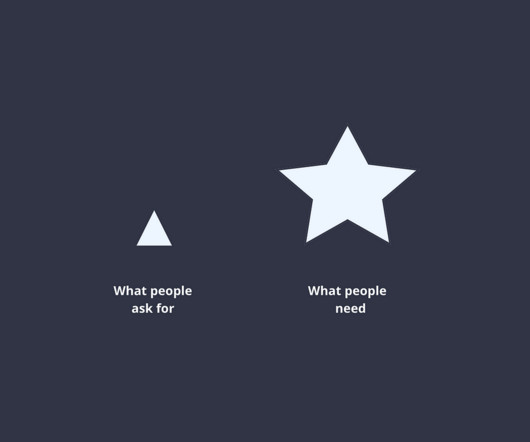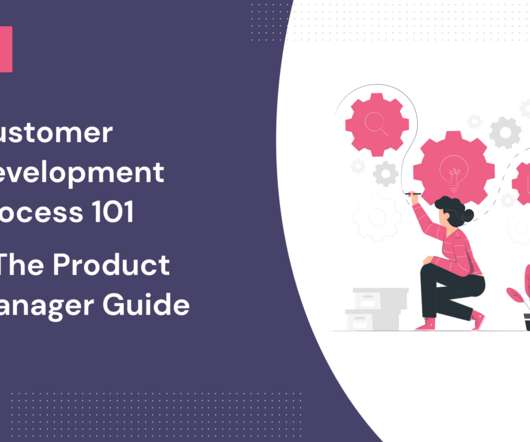When You Should Not Listen to Your Customers
The Product Coalition
OCTOBER 9, 2023
To assist with the practicalities of product management, I propose segmenting user needs in a way that differentiates between the expressed needs that people volunteer, the unexpressed needs they do not communicate, and the unrecognised and potential needs they cannot accurately describe themselves.


















Let's personalize your content